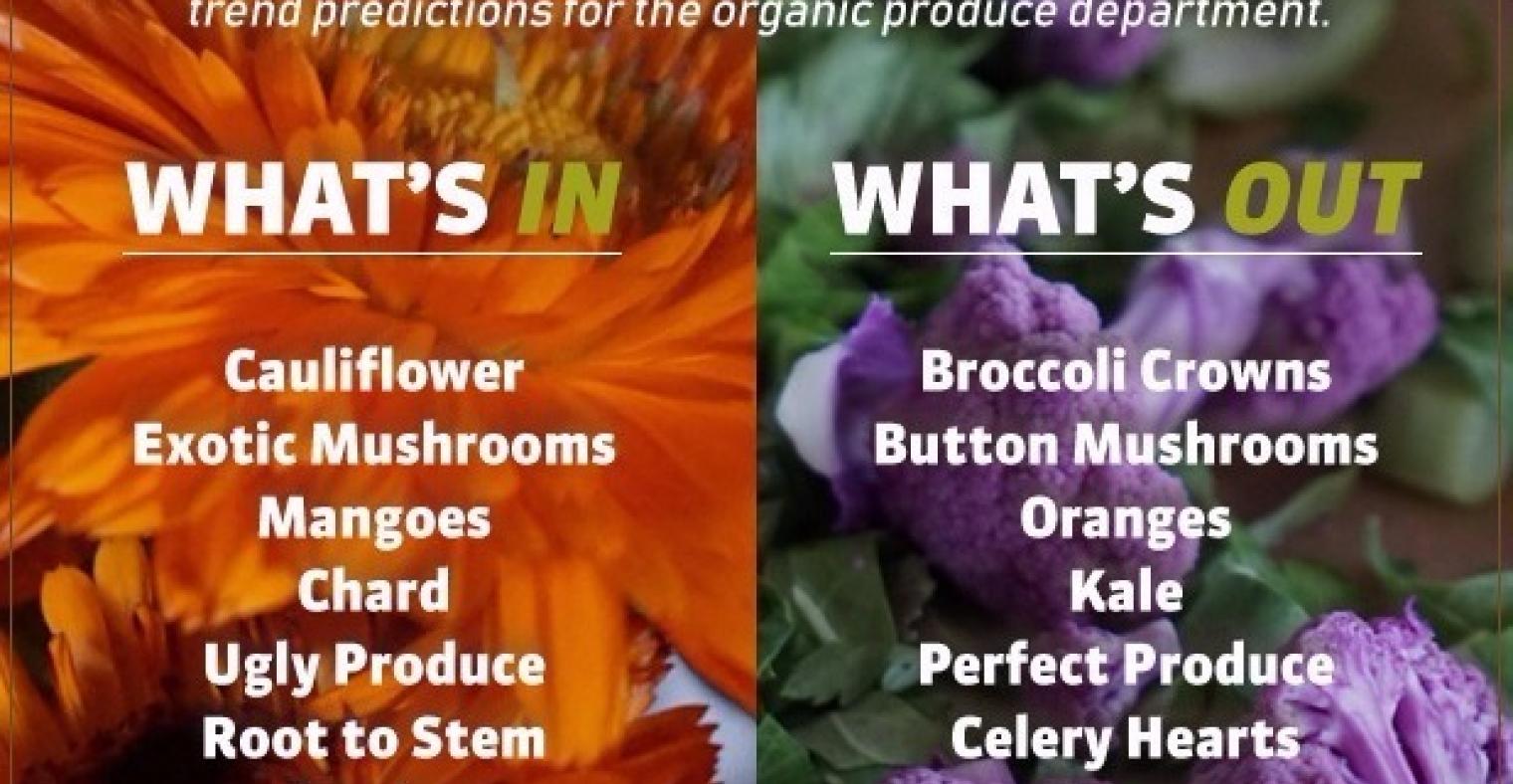What our Innovators are Reading Now
Posted on January 05, 2018 10:12 AM by WGCIT
Organic Industry Insiders Share Thoughts on Trends and Predictions for 2018, January 4, 2018
A new year brings new challenges and opportunities----and predictions on what fruit or vegetable item will make waves in 2018 and which will wilt away. OPN asked organic industry insiders to share their thoughts on organic produce trends for 2018. Our experts had plenty to say about who drives trends, what upcoming items may become consumer obsessions and what issues concern them most.
Agtech Exits: 2017 Activity Generates Cautious Optimism for 2018
AgFunder.com, Louisa Burwood-Taylor, January 3, 2018: By many accounts, 2017 was a good year for agtech exits. That was not only because exciting exits in agtech have been few and far between for the last few years, but also because a couple of the major ag players — Deere & Company and Dow DuPont — made acquisitions.
No longer distracted by consolidation and the ensuing M&A transactions, this could be a signal that the large strategic players will have more time, and money, to pursue more exits in 2018, according to some industry insiders.
10 AG MERGERS AND ACQUISITIONS FROM 2017
Gil Gullickson, December 20, 2017: In a down agricultural economy, firms look to mergers and acquisitions to gain efficiencies. Mergers and acquisitions picked up in the agricultural arena in 2017.
The Big Six in the agricultural seed, chemical, and traits area – BASF, Monsanto, Bayer, Dow, Syngenta, and DuPont – are rapidly becoming the big four—BASF, Bayer-Monsanto, DowDuPont, and ChemChina-Syngenta. Acquisitions also took place in the machinery arena with AGCO’s purchase of Precision Planting. Ditto for data, as evidenced by DowDuPont’s purchase of Granular. It’s even happened on the farmer level, as some farmer-owned cooperatives merged.
These Are Not Your Father’s GMOs
Antonio Regalado, December 19, 2017: A new wave of gene-edited crops are dodging regulators, and they’re about to reach stores. …To many scientists, the potential of gene editing seems nearly limitless, offering a new way to rapidly create plants that are drought-resistant, immune to disease, or improved in flavor. A supermarket tomato that tastes good? That could happen if scientists restore the flavor-making genes that make heirloom varieties delicious. What about a corn plant with twice as many kernels? If nature allows it, scientists believe, gene editing could let them build it.
Sustainable Ag Series: Farmers
Dirt-to-Dinner : In our series on agricultural sustainability, we illustrate how NGOs, government regulators, corporations, and farmers each achieve their sustainability goals as well as how they work together in larger initiatives.
“Growers are performing ‘sustainable practices’ but do not see them as such; they see them as just good farming practices and being good stewards of their land.”
– Hank Giclas, Western Growers
The agriculture industry is often criticized for using too much water, using too many chemicals, and adding more carbon to the atmosphere. However, farmers have their boots on the ground and occupy the front lines of sustainability initiatives within agriculture. No farms, no food!
Standing Room Only Crowd Packs Organic Cannabis Panel Discussion
OPN January 4, 2018: Perhaps in a nod to the next frontier of business opportunities in organic growing, the most popular educational breakout session at the sold-out inaugural Organic Grower Summit was “Organic Disruption — Cannabis: The Next Frontier.”
Disrupting Food Retail: Sun Basket Fills the What’s-For-Dinner Need
OPN: The $650 billion brick-and-mortar retail grocery experience has not changed materially, despite the rapid pace of disruption occurring in sectors all around it. Grocery stores are still organized functionally rather than according to shoppers’ need states. This leaves a big opportunity for another model to offer a more satisfying answer to the near daily need: “What’s for dinner?” ...With 80 percent of people cooking at home three to five times per week, and increasingly seeking fresher, healthier, and simpler, more sustainable and – above all – more delicious options, it’s not surprising that meal kits have created such a stir.
Increasing Food Production with Technology Worldwide – and Locally
Erika Kosina, Nevada County Tech Connection: California, which boasts more than its fair share of both techies and farmers, hosts several AgTech conferences, some of which attract more than 600 attendees. And these AgTech pioneers are making a difference.
Technology has allowed the inudustry to increase food production by leaps and bounds ever since our ancient ancestors graduated from the digging stick to the hoe. On today’s farm, smart phones and laptops are as common as combines and tractors. The 4th industrial revolution and the advent of the Internet of Things where the internet is connecting devices and things at an unprecedented rate is pushing agricultural technology even further.
Rebalancing Regulatory Policies: Bureau of Reclamation Looks to “Maximize Water Deliveries”
Tom Nassif, President and CEO of Western Growers, January 4, 2018: Farmers in California and across the country feed the world with greater efficiency and stewardship than has ever been observed in the history of mankind. Our ability to feed millions of our brothers and sisters around the globe is unique and worthy of protection. That this administration has changed course in managing the nation’s largest irrigation project is a welcome and overdue acknowledgment that the perpetuation of failed policies serves neither the needs of our people or our ecosystems.


